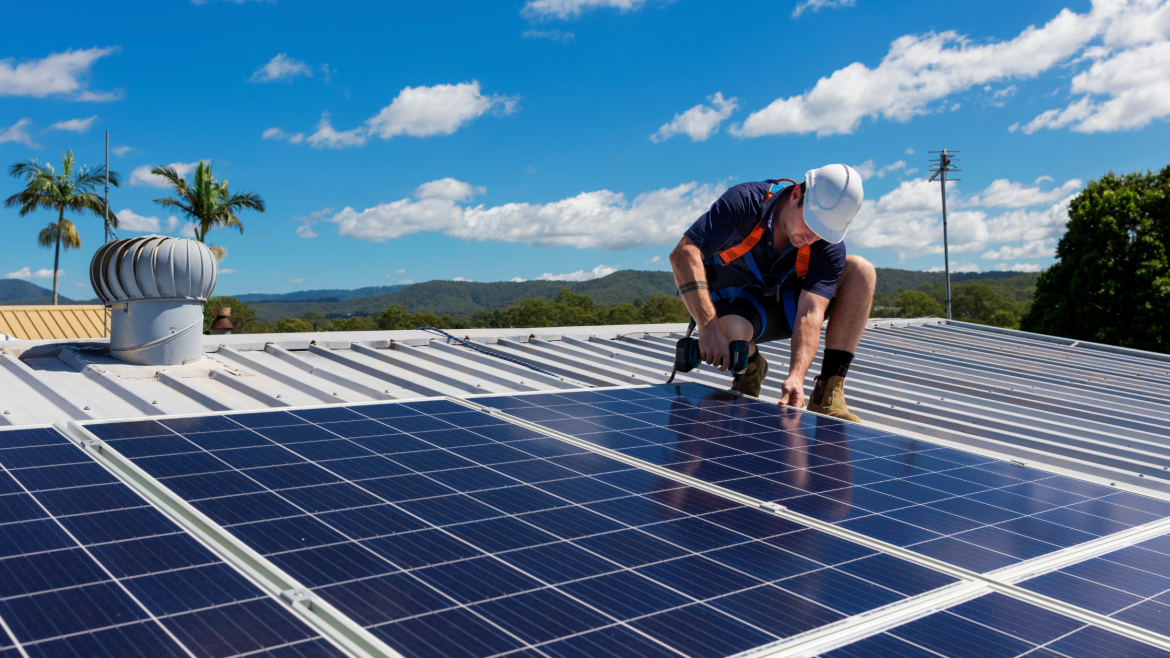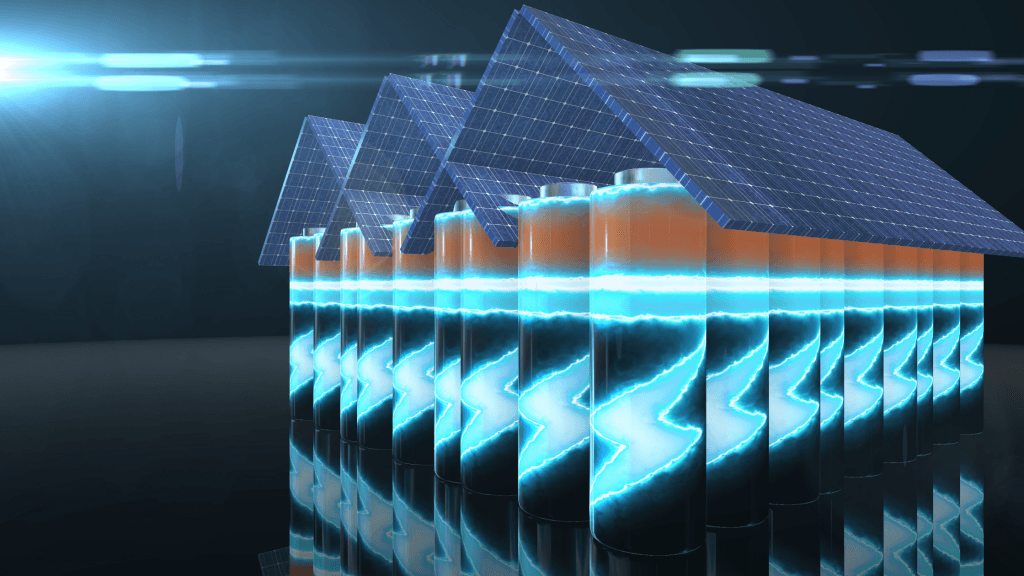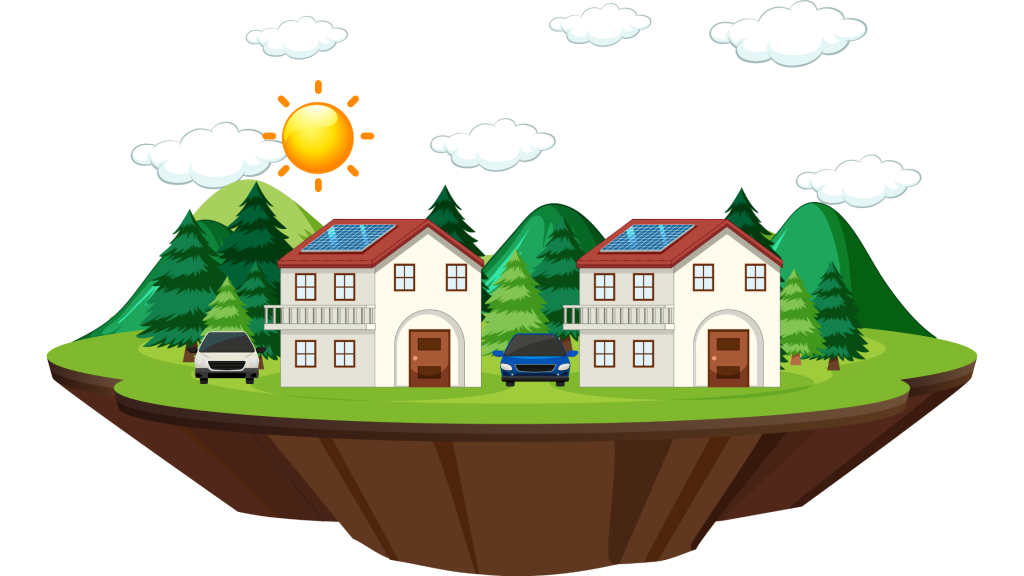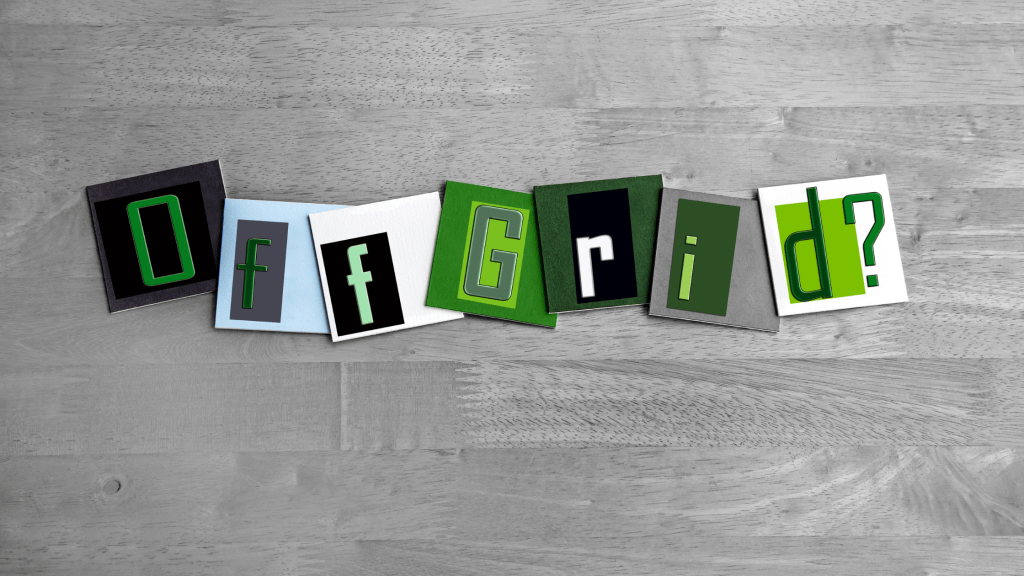
Backup Power, Batteries, Charge Controllers, Grid-Tie Solar, Inverters, Off-Grid Solar, Renewable Energy, Solar Facts & Figures, Solar Panels, Solar Power
Living off the grid and generating your own electricity from solar power systems may seem like a distant dream for many. However, it is an achievable goal. In fact, it’s a movement that’s growing more popular by the day.
Advances in solar technology and energy storage have made it possible to use the sun for powering our homes and appliances. This is true even when the electrical grid is down.
Solar power systems have transformed the way we produce energy. With the installation of solar panels, it is now possible to generate electrical power from clean energy sources like the sun.
A panel system is used to transform sunlight into direct current (DC) electricity. This DC electricity is then converted to alternating current (AC) electricity. This AC electricity can be used to power appliances and electronics in the home.

Off-grid solar power systems use AGM lead carbon or lithium ion batteries. These batteries store excess electricity produced during the day. This excess electricity allows for power to be supplied at night or on cloudy days. With this technology, going off-grid and generating your own electricity is now a feasible possibility.
By using solar power systems, we can reduce our carbon footprint, become self-reliant, and enjoy a sustainable lifestyle. Proper maintenance and monitoring of components is essential for efficient and effective off-grid system operation.
Advances in solar technology and energy storage make it possible to generate clean energy from the sun.
In this post, we’ll explore the benefits of going off-grid with solar power systems and how you can get started.
What Does It Mean to Go Off-Grid?
Going off-grid means cutting the cord from traditional power sources such as utility companies. Individuals or households can choose to generate their own electricity instead of relying on public power sources. This electricity can be generated using renewable energy sources, such as solar power.
Going off-grid is an option for those who want to be self-sufficient. An off-grid system has several important parts. These include solar panels, charge controllers, AGM or lithium batteries, battery chargers, off-grid inverters, and power output monitoring systems.
You can design the system yourself using the tools in our Resource Library, or get a prepackaged kit. We have off grid kits of all sizes, including our Power Up Kits, Cabin Kits, Tiny House Kits and Off Grid Home Kits.
Solar panels are the foundation of off-grid solar systems as they convert sunlight into electrical energy.

The charge controllers regulate the amount of energy that flows from the solar panels to the batteries, protecting them from overcharging.
Batteries store the electrical energy produced by the solar panels, and battery chargers ensure the batteries are always fully charged.
Off-grid inverters transform direct current (DC) power stored in batteries into alternating current (AC) power. This AC power is then used to power appliances and other devices in the home. The off-grid inverter must manage the power output from the batteries. It must also regulate the amount of power being used at any given time.
The newest innovation in off grid technology is the prewired power panel. The power panel integrates the inverter, charge controller, battery charger, monitoring disconnects and other parts into a single system. The power panels are the heart of your system, and getting them prewired can save over 40 hours of labor.
How Solar Power Works
Solar power systems generate electricity from sunlight using photovoltaic (PV) cells. These cells convert sunlight into direct current (DC) electricity. An inverter converts DC electricity to AC electricity. This type of electricity can be used to power appliances and electronics in the home.
PV cells contain semiconductor materials like silicon. Sunlight is absorbed by these materials, and the photons knock electrons away from atoms. This causes a flow of electrons, which can be used as electricity. This process is called the photovoltaic effect, and it’s what makes solar power systems work.
The amount of electricity generated by solar power systems depends on the amount of sunlight available. Solar panels are often installed on rooftops or in places that get plenty of sunlight during the day. This is because they need to be exposed to sunlight to generate energy.

Solar power systems may include batteries, and they are a must for off grid systems. These batteries store excess electricity generated during the day. This electricity can then be used at night or during times of low sunlight.
Solar power systems are reliable and renewable sources of electricity. They can help reduce carbon footprints and energy bills. Plus, they can enable you to live off-grid and enjoy a self-sufficient lifestyle.
Off-Grid Solar Power Systems: What You Need to Know
When it comes to off-grid living, solar power is one of the most popular and effective options available.
One of the key considerations when setting up an off-grid solar power system is sizing. Ensure your system is capable of providing enough power to meet your needs. This should be true even when there is low sunlight. This typically involves calculating your daily energy consumption, as well as factoring in seasonal variations and weather patterns.
Going off-grid with solar power requires consideration of more than just the core components of the system. Other factors must be taken into account. For example, you may need to invest in a backup generator to provide power during extended periods of low sunlight.
To maximize your investment, adjust your energy consumption habits. Invest in more energy-efficient appliances and devices. Ensure your system can handle your needs.
An off-grid solar power system is a great option for those who want to break away from the grid or bring power to remote locations. It allows for a more sustainable and self-sufficient lifestyle.
The Benefits of Going Off-Grid with Solar Power
Going off-grid with solar power offers numerous benefits, ranging from financial savings to environmental impact. Here are some of the benefits you can expect:

Becoming energy independent is possible. Going off-grid means you can be self-sufficient in terms of energy. You no longer need to depend on the power grid for electricity. Therefore, you won’t be impacted by power outages, grid maintenance, or other disruptions nor the high cost of brining power to remote locations.
Solar power is a clean and renewable source of energy. This means it has a lower environmental impact than traditional power sources, such as fossil fuels. By going off-grid with solar power, you can reduce your carbon footprint and contribute to a more sustainable future. You can also eliminate or reduce your generator run time, for a more peaceful and relaxing experience.
Resilience is improved when you switch to solar power. This helps you to be more prepared during natural disasters, power outages, and other disruptions. Your solar power system will continue to provide you with energy, even if the power grid goes down.
Going off-grid with solar power provides freedom. You can live in any location without worrying about being connected to the power grid. This means you can choose to live in remote or rural areas without sacrificing modern conveniences.
Going off-grid with solar power has many benefits. It is an attractive option for those who want to reduce their dependence on traditional power sources. It is important to do research before deciding to go off-grid. Consider if it fits with your lifestyle.
Off-Grid Living: Is It Right for You?

Living off-grid is an attractive choice for those who want to reduce their dependence on traditional energy sources. Solar power can help them become more self-sufficient. Here are some factors to consider before going off grid with solar:
1. Location: Off-grid living with solar power is best suited to areas with ample sunlight. Generating enough power to meet your needs can be hard in areas that don’t have direct sunlight.
2. Energy consumption: If you heavily rely on electrical devices and appliances, and have very large energy usage, it may not be the best option to go off grid. It’s important to be mindful of your energy usage and invest in efficient appliances and devices.
3. Cost: The upfront cost of installing an off-grid solar power system can be significant, but it doesn’t have to be. You can start off small and build up over time.
4. Lifestyle: Off-grid living often requires a more self-sufficient lifestyle. You may need to learn new skills like gardening, preserving food, and basic home repairs if you find yourself very far from services. It’s important to consider whether this type of lifestyle aligns with your values and interests.
Ultimately, off-grid living with solar power can be a rewarding and sustainable way of life. However, it’s important to consider the practicalities and determine whether it’s the right choice for you and your family.
